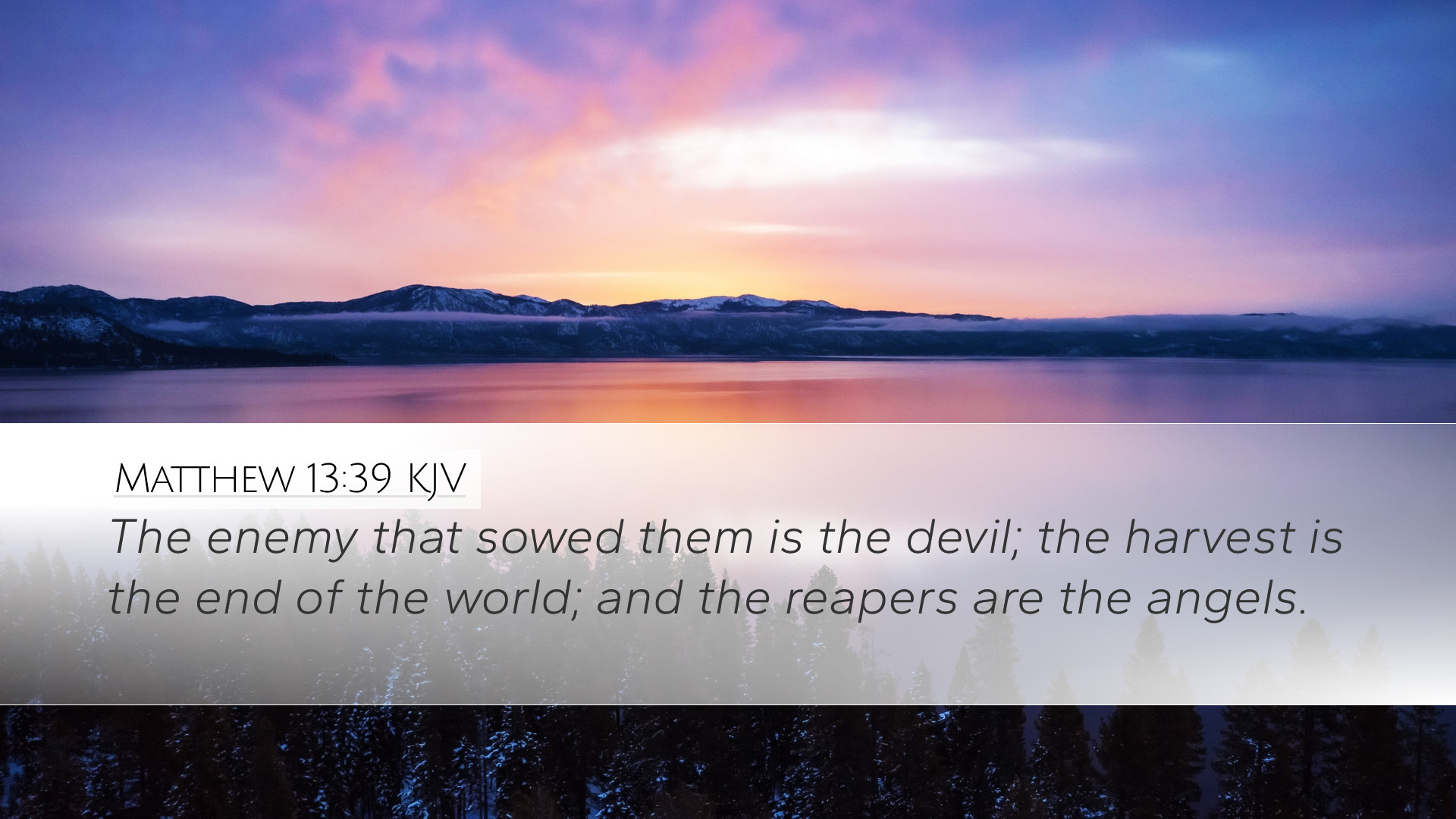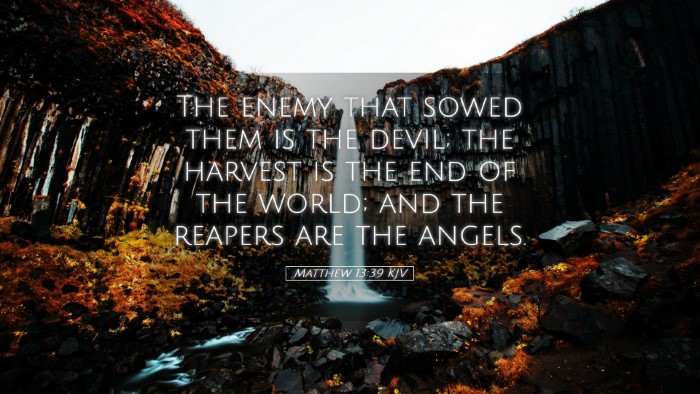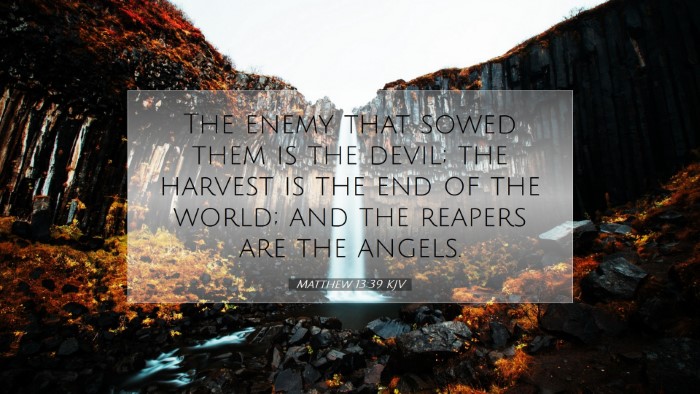Commentary on Matthew 13:39
Verse Text: "And the enemy who sowed them is the devil. The harvest is the end of the age, and the reapers are angels."
General Overview
This verse is part of the Parable of the Weeds, which is one of the several parables mentioned in Matthew 13. Through this parable, Jesus delineates the presence of good and evil within the world and the ultimate fate of both at the end of time. When examining this verse, the focus shifts towards the role of the adversary, the significance of the harvest, and the roles assigned to angels as reapers.
Commentary from Matthew Henry
- Identification of the Enemy: Matthew Henry emphasizes the identity of the sower of the tares as the devil, which underscores the reality of spiritual warfare. The presence of evil in the world is attributed directly to malevolent forces at work.
- Harvesting Symbolism: The harvest represents the culmination of history, at which time God will bring judgment. This reflects the theological concept of eschatological finality, where the righteous and unrighteous will be distinguished.
- Role of Angels: Henry notes that angels are depicted as reapers at the end of the age, highlighting their function in God's plan. They are not only messenger beings but also agents of His judgment.
Insights from Albert Barnes
- The Devil as an Instigator: Barnes elaborates on the character of the 'enemy,’ portraying the devil as not merely a passive observer but as an active instigator of evil. This characterization compels believers to recognize the ongoing battle against sin and how the devil strategically sows discord.
- The End of the Age: He relates 'the end of the age' to both a culmination of human history and a time of divine reckoning. This has profound implications for pastoral preaching, urging a focus on the urgency of repentance and salvation.
- Angelical Mediation: Barnes points out angels’ role as instruments of divine justice, reminding readers of their existence and involvement in earthly affairs from a heavenly perspective.
Reflections by Adam Clarke
- Understanding Evil's Presence: Clarke proposes that understanding the enemy's presence enriches theological discussions about the nature of evil. He articulates that recognizing the devil's tactics can empower believers to remain vigilant and proactive in their faith walk.
- The Harvest Context: In Clarke's assessment, the harvest signifies not only judgment but also hope for believers—illustrating that while evil has its time, the final outcome is deliverance for the righteous and condemnation for the wicked.
- Angelic Role in Judgment: He accentuates the idea that angels act based on God’s command, operating as instruments deployed to execute God’s will—offering both comfort and a warning to humanity.
Theological Implications
This verse encapsulates critical elements of Christian eschatology, focusing on the presence of evil, the integrity of God's justice, and the hope for believers. It serves as a foundation for understanding how evil exists alongside good in the current age and how God will ultimately address this imbalance.
The acknowledgment of the devil as the enemy serves as a poignant reminder to the faithful regarding vigilance in spiritual matters. It underscores the need for an active defense against temptations and falsehood. The motif of angels as reapers points to a divine oversight of human history, emphasizing that nothing escapes God's attention.
Furthermore, the concept of harvest not only signifies the end of time but signifies a transition—the faithful reap eternal life, while the unfaithful face separation from God's presence. This duality gives profound pastoral implications, urging a narrative of both warning and invitation to grace and salvation.
Application for Pastors and Scholars
- Preaching Themes: Pastors may draw from this verse to explore themes of judgment, grace, and spiritual vigilance in their sermons. They can utilize the imagery of the harvest to cultivate a sense of urgency and accountability among congregants.
- Spiritual Warfare: The identity of the enemy should encourage deeper discussions around spiritual warfare in teaching, guiding believers in understanding their ongoing struggle against forces that seek to undo faith.
- Encouraging Vigilance: Scholars can emphasize the importance of vigilance and discernment in the face of worldly distractions and deceptions, offering theological insight into the necessity of anchoring one's faith in the revealed truth of Jesus Christ.


